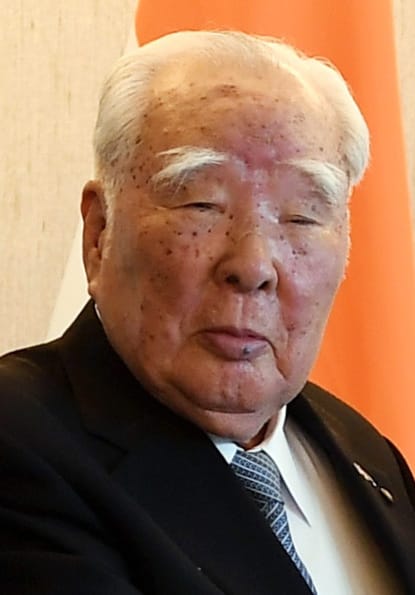The Man Who Changed India’s Roads: Osamu Suzuki’s Legacy Revealed

Osamu Suzuki, a visionary and frugal leader who guided Japan’s Suzuki Motor Corporation for over four decades, has passed away at the age of 94. He died on December 25 due to lymphoma, as announced by the company he led with unwavering dedication.
During his tenure as either the CEO or chairman, Suzuki transformed the company from its roots in minivehicles to a global automotive powerhouse. The company’s initial success in Japan was built on small, 660-cc cars that benefited from tax incentives but required stringent cost control, a principle that became integral to Suzuki’s business philosophy.
Suzuki’s commitment to fiscal prudence was legendary. He was known for implementing cost-saving measures such as lowering factory ceilings to reduce air-conditioning costs and traveling in economy class even in his later years.
Born Osamu Matsuda, he adopted his wife’s family name, Suzuki, a common practice in Japanese families without a male heir. He joined Suzuki Motor Corporation in 1958, after a stint in banking, and rose through the ranks to become president in the late 1970s.
In the 1970s, Suzuki played a crucial role in saving the company by securing an engine supply deal with Toyota Motor to comply with new emissions regulations. He then made a bold and risky decision to invest a significant portion of the company’s earnings into establishing a national car manufacturer in India.
Driven by a desire to be a market leader somewhere in the world, Suzuki saw potential in India, which at the time had a nascent automotive market with annual car sales of less than 40,000 units, mostly consisting of outdated British models. The Indian government had nationalized Maruti, a project initiated by Sanjay Gandhi to produce an affordable “people’s car.”
Suzuki partnered with Maruti and this partnership was facilitated by a Suzuki director in India who learned about Maruti’s potential deal with Daihatsu through a newspaper article. Suzuki quickly extended an invitation to the Maruti team, leading to a letter of intent being signed within months.
The first car produced under this partnership, the Maruti 800, was launched in 1983 and became an instant success. Today, Maruti Suzuki, majority-owned by Suzuki Motor, dominates approximately 40% of India’s car market.
Suzuki also introduced significant cultural changes within the company, emphasizing equality in the workplace. He implemented open-plan offices, a single canteen, and uniform policies for both executives and assembly-line workers, reflecting his commitment to a more egalitarian work environment.
Under Suzuki’s leadership, Suzuki Motor Corporation expanded globally, focusing on small and compact cars, particularly in South and Southeast Asia. His legacy includes not only the transformation of Suzuki into a global automotive giant but also his profound impact on the Indian automotive industry.



